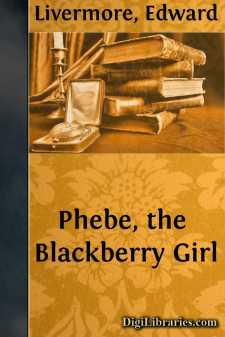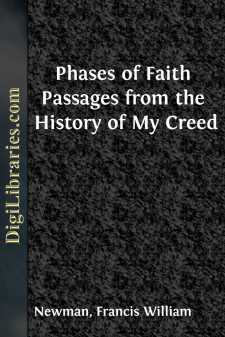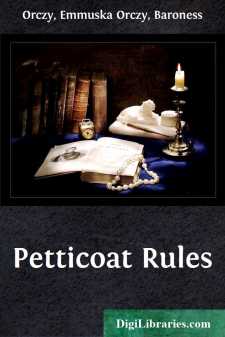Fiction
- Action & Adventure 180
- Biographical 15
- Christian 59
- Classics
- Coming of Age 5
- Contemporary Women 3
- Erotica 8
- Espionage/Intrigue 12
- Fairy Tales, Folklore & Mythology 236
- Family Life 169
- Fantasy 117
- Gay 1
- General 596
- Ghost 32
- Historical 808
- Horror 43
- Humorous 160
- Jewish 25
- Legal 4
- Medical 22
- Mystery & Detective 315
- Political 49
- Psychological 41
- Religious 64
- Romance 159
- Sagas 11
- Science Fiction 730
- Sea Stories 113
- Short Stories (single author) 537
- Sports 10
- Suspense 1
- Technological 8
- Thrillers 2
- Urban Life 31
- Visionary & Metaphysical 1
- War & Military 173
- Westerns 199
Classics Books
Sort by:
by:
Edward Livermore
THE BLACKBERRY GIRL. PART I. "Why, Phebe, are you come so soon, Where are your berries, child?You cannot, sure, have sold them all, You had a basket pil'd." "No, mother, as I climb'd the fence, The nearest way to town,My apron caught upon a stake, And so I tumbled down." "I scratched my arm, and tore my hair, But still did not complain;And had my...
more...
by:
Anna Chapin Ray
CHAPTER ONE "How do you do?" The remark was addressed to a young man who roused himself from a brown study and looked up. Then he looked down to see whence the voice proceeded. Directly in his pathway stood a wee boy, a veritable cherub in modern raiment, whose rosy lips smiled up at him blandly, quite regardless of the sugary smears that surrounded them. One hand clasped a crumpled paper bag;...
more...
CHAPTER I. MY YOUTHFUL CREED. I first began to read religious books at school, and especially the Bible, when I was eleven years old; and almost immediately commenced a habit of secret prayer. But it was not until I was fourteen that I gained any definite idea of a "scheme of doctrine," or could have been called a "converted person" by one of the Evangelical School. My religion then...
more...
CHAPTER I Along Broadway at six o'clock a throng of pedestrians was stepping northward. A grayish day was settling into a gray evening, and a negative lack of color and elasticity had matured into a positive condition of atmospheric flatness. The air exhaled a limp and insipid moisture, like that given forth by a sponge newly steeped in an an?sthetic. Upon the sombre fretwork of leafless trees,...
more...
"My dear Trevelyan: Never in my life have I been placed in such an awkward, not to say invidious, position. I am, as you know, a plain man, fond of a plain life and plain speaking, and yet I am about to imperil that reputation by communicating to you what I fancy you will consider the most extraordinary and unbelievable intelligence you have ever received in your life. For my own part I do not know...
more...
by:
Lee Francis
The automobile reached the crest of the hill, skidded and started toward the ditch. Earl Robinson twisted the wheel savagely, got the feel of the ice hidden under the snow, and deftly straightened the car. Roy Starr awakened at his side and sat up. His eyes were narrowed with sleep. "Lord," he groaned, "how much farther?" Robinson spoke through gritted teeth. "About three miles....
more...
CHAPTER I. PENELOPE. People dined earlier forty years ago than they do now. Even that salt of the earth, the elect of society, represented by that little great world which lies between the narrow circle bounded by Bryanstone Square on the north and by Birdcage Walk on the south, did not consider seven o'clock too early an hour for a dinner party which was to be followed by routs, drums, concerts,...
more...
by:
Benjamin Jowett
INTRODUCTION. The Phaedrus is closely connected with the Symposium, and may be regarded either as introducing or following it. The two Dialogues together contain the whole philosophy of Plato on the nature of love, which in the Republic and in the later writings of Plato is only introduced playfully or as a figure of speech. But in the Phaedrus and Symposium love and philosophy join hands, and one is...
more...
by:
Benjamin Jowett
INTRODUCTION. After an interval of some months or years, and at Phlius, a town of Peloponnesus, the tale of the last hours of Socrates is narrated to Echecrates and other Phliasians by Phaedo the 'beloved disciple.' The Dialogue necessarily takes the form of a narrative, because Socrates has to be described acting as well as speaking. The minutest particulars of the event are interesting to...
more...
CHAPTER IA FAREWELL BANQUET "D'Aumont!" "Eh? d'Aumont!" The voice, that of a man still in the prime of life, but already raucous in its tone, thickened through constant mirthless laughter, rendered querulous too from long vigils kept at the shrine of pleasure, rose above the incessant babel of women's chatter, the din of silver, china and glasses passing to and fro....
more...











